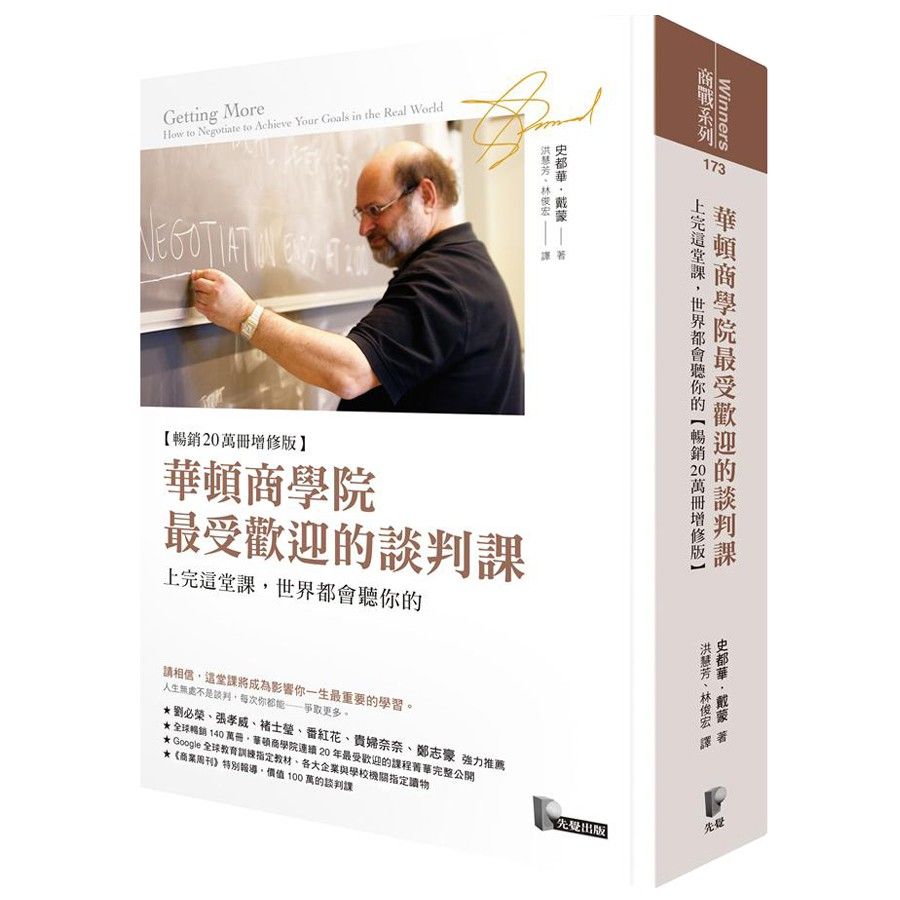"The Wharton School's Most Popular Negotiation Class" Book Report

Before negotiating, first care about the other party "How are you today?"
Before negotiating, the first thing the author will do is not to put forward a price, but to first care about the other party "how are you today?".
Take the initiative to establish a relationship with the other party, ask questions to obtain information, focus on the other party, and create an atmosphere of relaxed chat. But this is definitely not to overpower the other party in the negotiation, but to achieve a result acceptable to both parties. Sometimes what you take does not mean that the other party must take less (because the two sides have different things of value).
Sometimes you only get what you should get under reasonable circumstances. In short, if the negotiation is to force the other party to submit, or to oppress the other party's interests, there will be no good results in the long run.
A common technique used in negotiation is to ask questions.
"Do you think there is any way for me to achieve this goal?"
"Help me, I don't understand..."
On the one hand, it values the other person's position of authority and shrinks itself, and on the other hand, it gives the other person a way to objectively participate in your problems, so that the other person can think and not feel challenged. If you want something or a discount, ask:
"any idea?"
"Have you ever made an exception?"
"Then what can we talk about?"
"Then who can decide?"
One of the key points in negotiation is to "persist".
Don't retreat easily, you can try to change and use different methods, constantly dig out more information, politely and politely but firmly ask "Why not?" This will create incomparable self-confidence for you in the long run.
It is very important to empathize with the emotional side of the other party. Often, negotiation is not a rational communication, but an emotional mutual understanding, which creates a relationship, and then the negotiation will be very easy, paying attention to the deepest needs of the other party and thinking of the other party.
When you can't discuss an issue with the other person, stop first, talk to the person first, and solve the problem later.
You can also tell them plainly:
"We had a good conversation yesterday, I don't know what happened today,
I'm sorry if I did something, I hope we can go back to what we were yesterday. "
When the other person gets emotional, stay calm.
Straight to the point of the answer:
"What do you think I did wrong?"
"Why do you think I'm an idiot?"
Keep trying to get to know him and get more information.
Try to use the "standard" set by the other person himself and ask him whether his current behavior is inconsistent:
"Is your company's spirit the customer first?"
"If the CEO of your company made the call, do you think he would accept your approach?"
Expanding the issue into a "structural issue" so that the other side understands that confronting the entire structure is more risky,
The point is not to make yourself an issue.
In the end, the whole point of the book is to try to find the "value asymmetry" in both sides' minds.
There are many things that cannot be measured by money or material things. Everyone wants to achieve something different. What is of great value to you may be of little value to another person. The point is that you can provide him with what is of great value in his heart. something?
So the focus goes back to finding out the needs of the other person, and "asking questions" and "observing" are the best methods.
Like my work? Don't forget to support and clap, let me know that you are with me on the road of creation. Keep this enthusiasm together!

- Author
- More